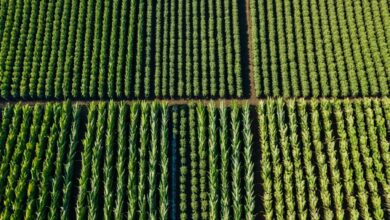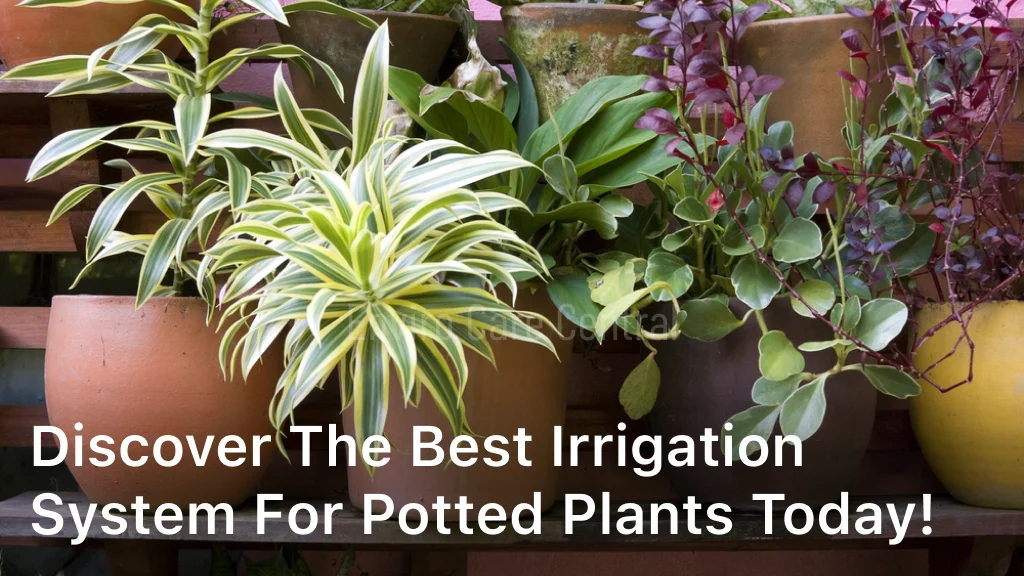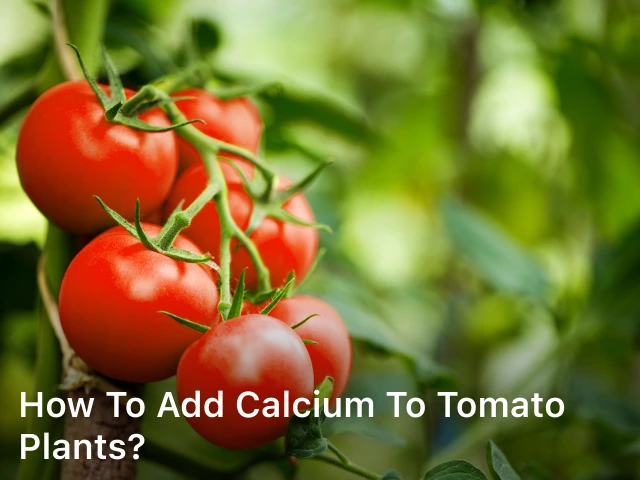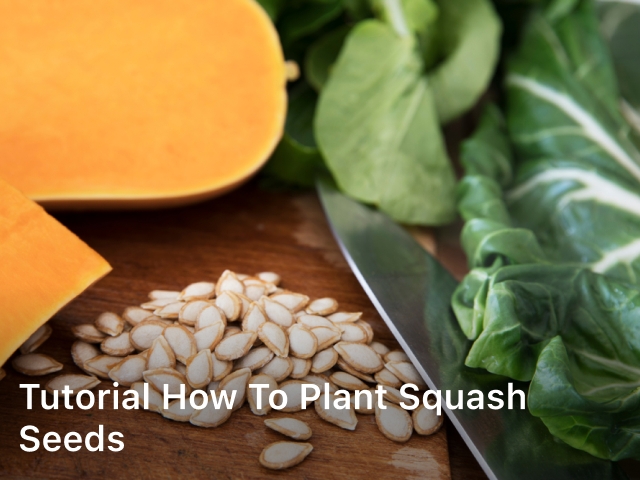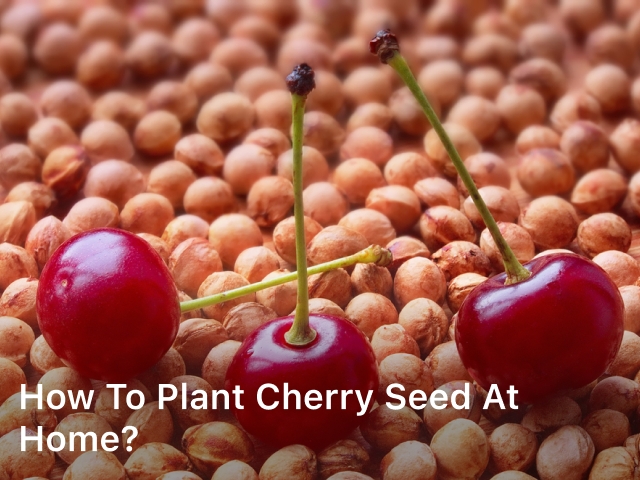What Helps Plants Grow Faster?
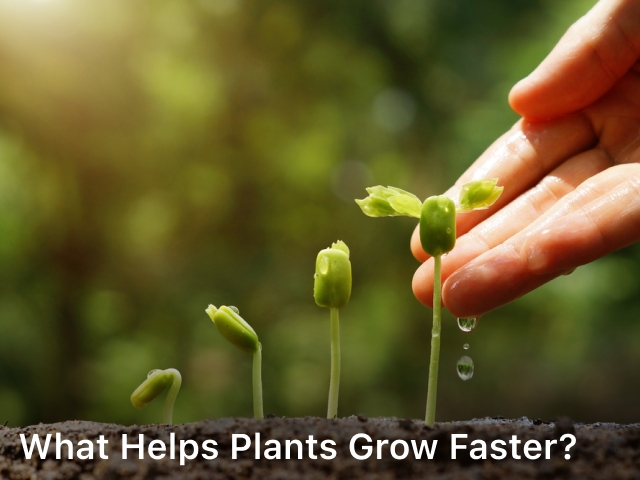
What Helps Plants Grow Faster? – Discover the secrets of accelerating plant growth in this informative guide. Learn about the factors that promote plant growth and unleash your green thumb.
Plants are more than just decorative elements in our surroundings; they play a vital role in maintaining the ecological balance and sustaining life on Earth.
Whether you’re a seasoned gardener or a newbie in the world of horticulture, understanding what helps plants grow faster is key to cultivating healthy and thriving greenery.
In this section guide, we’ll delve into the essential factors that contribute to accelerated plant growth, providing you with valuable insights and expert tips.
Plants require the right conditions and care to grow at their best. Whether you have a garden, potted plants, or a lush indoor jungle, knowing how to promote faster plant growth can lead to vibrant and flourishing foliage.
In this article, we’ll explore the various aspects that influence a plant’s growth and health, from soil quality to proper watering techniques and more.
What Helps Plants Grow Faster?
Plants, like all living organisms, have specific requirements for optimal growth. Understanding and meeting these needs can significantly enhance their growth rate. Here are some key factors that contribute to faster plant growth:
1. Nutrient-Rich Soil
Quality soil is the foundation of healthy plant growth. Ensure your plants are rooted in nutrient-rich soil that provides essential minerals and organic matter. This allows for robust root development and efficient nutrient absorption.
2. Proper Watering
Watering your plants correctly is crucial. Overwatering can lead to root rot, while underwatering can cause stress. Find the right balance by checking the moisture level in the soil regularly and adjusting your watering schedule accordingly.
3. Adequate Sunlight
Plants need sunlight to photosynthesize and produce energy. Place your plants in locations where they receive the appropriate amount of sunlight for their specific species. Research the sunlight requirements of each plant in your care.
4. Temperature Control
Maintaining the right temperature is essential for plant growth. Some plants thrive in cooler conditions, while others prefer warmth. Make sure your plants are kept in an environment that matches their temperature preferences.
5. Pruning and Trimming
Regular pruning and trimming can stimulate new growth by redirecting energy to healthier branches and leaves. Be sure to use clean and sharp tools to avoid damaging the plant.
6. Fertilization
Fertilizers provide essential nutrients that may be lacking in your soil. Choose a suitable fertilizer based on your plant’s needs and follow recommended application rates.
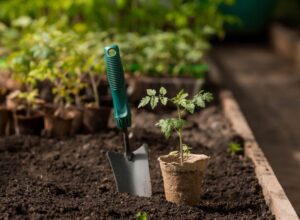
What chemicals help plants grow faster
Plants require various nutrients and chemicals to grow, and it’s important to provide them in the right balance. Here are some key chemicals and nutrients that can helps plants grow faster:
- Water (H2O): Water is essential for all plant growth processes. It helps transport nutrients throughout the plant and is involved in photosynthesis.
- Nitrogen (N): Nitrogen is a crucial component of chlorophyll, the pigment responsible for photosynthesis. It promotes leafy green growth and overall plant development.
- Phosphorus (P): Phosphorus is vital for root development, flowering, and fruiting. It helps transfer energy within the plant and is essential for the formation of DNA and RNA.
- Potassium (K): Potassium regulates many physiological processes in plants, including the opening and closing of stomata, which influences water and nutrient uptake.
- Calcium (Ca): Calcium is necessary for cell wall structure and stability. It also plays a role in various cellular processes.
- Magnesium (Mg): Magnesium is a central component of chlorophyll and is involved in photosynthesis. It also activates enzymes necessary for growth.
- Sulfur (S): Sulfur is essential for the production of amino acids and proteins. It is also involved in the formation of chlorophyll.
- Iron (Fe): Iron is required for the synthesis of chlorophyll and various enzymes involved in plant metabolism.
- Zinc (Zn): Zinc is a micronutrient that plays a role in the development of plant hormones and enzyme activity.
- Copper (Cu): Copper is involved in several enzyme systems and helps with plant respiration.
- Manganese (Mn): Manganese is essential for photosynthesis, nitrogen metabolism, and the formation of plant cell walls.
- Boron (B): Boron is necessary for cell division, pollination, and the development of fruit.
- Molybdenum (Mo): Molybdenum is needed for nitrogen fixation in legumes and various enzymatic reactions.
- Chelated Micronutrients: Chelated forms of micronutrients are more readily available to plants because they are protected from binding with other ions in the soil, making them easier for plants to absorb.
- Plant Growth Hormones: Plant hormones like auxins, gibberellins, and cytokinins can be used to influence plant growth and development, including stimulating root growth or encouraging flowering.
- Organic Matter: Adding compost or organic matter to the soil can improve nutrient retention, moisture retention, and microbial activity, all of which contribute to healthier plant growth.
It’s important to note that while these chemicals and nutrients are essential for plant growth, providing too much of any one element can be detrimental to plants. Proper soil testing and understanding your specific plant’s nutrient needs are essential for promoting healthy and faster growth.
What liquids help plants grow best
Water is the most crucial liquid for plant growth. It is essential for various plant processes, including photosynthesis, nutrient uptake, and the transportation of minerals and sugars throughout the plant.
However, there are a few important considerations when it comes to watering your plants effectively:
- Clean, Fresh Water: Most plants thrive when watered with clean, fresh water that is free from contaminants. Avoid using water that is too salty, chlorinated, or contains harmful chemicals.
- Proper Moisture Levels: It’s essential to maintain the right moisture level for your specific plants. Some plants prefer consistently moist soil, while others like to dry out slightly between waterings. Overwatering can lead to root rot, while underwatering can stress and damage plants.
- pH Levels: The pH of the water can affect plant growth. Most plants prefer slightly acidic to neutral pH levels. If your water is too acidic or alkaline, it may be necessary to adjust it using appropriate treatments.
- Rainwater: Many gardeners find that using collected rainwater can be beneficial for plants because it’s naturally soft and free from additives. However, the availability of rainwater depends on your location and the climate.
- Proper Drainage: Adequate drainage is crucial to prevent waterlogged soil, which can suffocate plant roots. Make sure your pots or garden beds have proper drainage systems in place.
- Watering Technique: Watering at the base of the plant rather than overhead can help prevent diseases and minimize water waste. Drip irrigation or soaker hoses can be effective methods.
- Consistency: Maintain a consistent watering schedule. Irregular watering, such as allowing plants to dry out completely and then overwatering, can stress plants and hinder growth.
- Avoid Extreme Temperatures: Extremely cold or hot water can shock plants. Using water at or near room temperature is generally best.
While water is the primary liquid for plant growth, other liquids like diluted fertilizers or compost tea can provide additional nutrients when used in moderation.
However, the composition of these liquid supplements should be carefully balanced to meet the specific needs of your plants, and they should not replace regular watering with clean, fresh water. Always follow recommended guidelines for any liquid fertilizers or treatments you choose to use on your plants.
What helps plants grow faster naturally
To helps plants grow faster naturally, you can take several steps that focus on providing the optimal conditions for their growth. Here are some natural methods to promote faster plant growth:
- Healthy Soil: Good-quality soil is the foundation for healthy plant growth. Ensure your soil is well-draining, rich in organic matter, and has the right pH for your specific plants. Adding compost or organic matter can improve soil structure and fertility.
- Choose the Right Plants: Select plant varieties that are well-suited to your climate and soil conditions. Native plants or those adapted to your region tend to thrive more easily.
- Proper Planting: Follow proper planting techniques, including planting at the right depth and spacing, to avoid overcrowding and competition for resources.
- Adequate Sunlight: Most plants require adequate sunlight to thrive. Ensure they receive the right amount of light based on their specific needs.
- Watering: Water your plants consistently but avoid overwatering. Different plants have varying water requirements, so it’s essential to understand the needs of each species.
- Mulching: Apply mulch around the base of your plants to retain soil moisture, regulate soil temperature, and reduce weed competition.
- Pruning and Deadheading: Regularly prune or deadhead (remove spent flowers) to encourage new growth and prevent the plant from expending energy on seed production.
- Natural Fertilizers: Use organic fertilizers like compost, well-rotted manure, or compost tea to provide essential nutrients to the soil. These natural fertilizers release nutrients slowly and improve soil health over time.
- Companion Planting: Some plants benefit from being grown alongside certain companion plants that provide natural pest control, nutrient cycling, or shade.
- Crop Rotation: If you have a vegetable garden, practice crop rotation to prevent soil depletion and reduce the risk of disease and pests.
- Beneficial Insects: Attract beneficial insects like ladybugs, bees, and predatory insects to your garden to help control pests and pollinate your plants.
- Weed Control: Regularly weed your garden to prevent weeds from competing with your plants for resources.
- Natural Pest Management: Employ natural pest management techniques, such as neem oil or diatomaceous earth, to control common garden pests without the use of harmful chemicals.
- Proper Pruning: Prune your plants as needed to promote healthy growth, remove dead or diseased branches, and shape the plant.
- Regular Maintenance: Regularly inspect your plants for signs of stress, disease, or nutrient deficiencies. Address issues promptly to support plant health and growth.
- Patience: Understand that natural growth takes time. Be patient and give your plants the time they need to establish themselves and flourish.
Remember that each plant species has unique requirements, so it’s essential to research and understand the specific needs of the plants you’re growing. Additionally, gardening practices can vary depending on your climate, so consider local conditions and expert advice when planning your garden.
Keep reading :
Frequently Asked Questions (FAQs)
Q: Can I use any soil for my plants, or is specific soil necessary for each type?
A: While some plants are more adaptable to different soil types, using soil tailored to your plant’s needs is ideal. Research the specific requirements for the plants you’re growing.
Q: How often should I water my plants?
A: The frequency of watering depends on factors like plant type, climate, and pot size. Always check the soil’s moisture level before watering.
Q: Can artificial light be a substitute for natural sunlight?
A: Yes, certain types of artificial light, such as grow lights, can mimic the spectrum of natural sunlight and promote plant growth indoors.
Q: Is it possible to over-prune a plant?
A: Yes, excessive pruning can harm a plant by removing too much foliage. Follow recommended guidelines for pruning to avoid overdoing it.
Q: What are some natural ways to fertilize my plants?
A: Compost and organic materials like eggshells and coffee grounds can be used as natural fertilizers to enrich the soil.
Q: Can music or talking to plants really help them grow faster?
A: While there’s no scientific evidence to support this, some gardeners believe that playing music or talking to plants can have a positive psychological effect.
Conclusion
Understanding what helps plants grow faster is the first step towards nurturing a flourishing garden or indoor oasis. By providing the right environment, nutrients, and care, you can ensure your plants thrive and bring natural beauty into your life.
Remember that each plant is unique, so take the time to learn about the specific needs of the plants you’re tending to. With patience and dedication, you’ll become a skilled gardener and enjoy the rewards of your green thumb.
Keep Reading :

